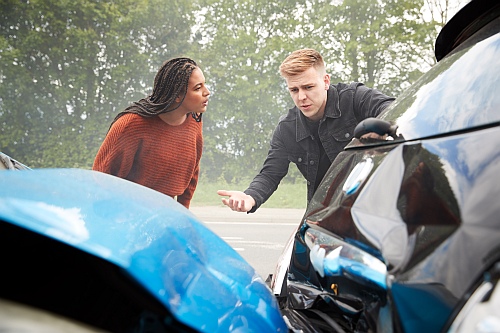Under the common law, a purveyor of alcohol could not be found negligent for furnishing liquor to an intoxicated person who caused injury to another. With respect to injuries caused by the intoxicated person, the intoxicated person would be held liable, but the person who furnished the liquor to the would-be or already intoxicated person was not subject to negligence liability because there was insufficient “proximate cause” between furnishing the alcohol and the injuries the intoxicated person caused. Delta Airlines, Inc. v. Townsend, 279 Ga. 511, 511-512 (1) (614 SE2d 745) (2005). Although this was a well-established rule, the legislatures of many states realized that freely providing booze to another could foreseeably lead to the injuries, especially if one considers the relative ubiquity of intoxicated driving. Consequently, states including Georgia passed Dram Shop legislation that abrogated the common law and imposed liability on those who sell liquor under certain circumstances. The scope of Georgia’s Dram Shop Law was recently addressed in a case from the Supreme Court of Georgia, Dion v. Ysg Enterprises, Inc..
Dion arose from a motor vehicle accident in the early hours of September 16, 2011. On that evening, the husband of the plaintiff in this action died in a single-car wreck. The decedent had been drinking at Depot Sports Bar and Grill for approximately eight hours, and his blood alcohol level was measured at .282. While he was at the bar, the decedent was visibly intoxicated. In fact, an employee had asked for the decedent’s keys, which the decedent refused to relinquish. Following the death, the decedent’s widow brought a wrongful death action against Depot Sports Bar and Grill, arguing that the actions of the bar’s employees were negligent and that their conduct was the proximate cause of the decedent’s accident and death. The defendant moved to dismiss, arguing that Georgia Dram Shop Law barred the widow’s claim. The trial court concurred and granted the motion, but the widow appealed.
First, a wrongful death action is a derivative of a decedent’s right of action. Thus, a survivor entitled to bring a wrongful death action “cannot recover for the decedent’s wrongful death if the decedent could not have recovered in his or her own right.” Mowell v. Marks, 269 Ga. App. 147, 148-49 (603 SE2d 702) (2004). Accordingly, the inquiry is whether the decedent could have recovered in a negligence suit against the bar. As noted above, the common law did not permit recovery in these circumstances, so the decedent’s right to recovery, and thus his spouse’s, depends on the alleged negligence falling within the scope of recovery permitted by Georgia’s Dram Shop Statute.
This law provides in relevant part that “[a] person who sells, furnishes, or serves alcoholic beverages to a person of lawful drinking age shall not thereby become liable for injury, death, or damage caused by or resulting from the intoxication of such person” except “a person […] who knowingly sells, furnishes, or serves alcoholic beverages to a person who is in a state of noticeable intoxication, knowing that such person will soon be driving a motor vehicle.” O.C.G.A. § 51-1-40 (b). A person who provides alcohol to a noticeably intoxicated person “may become liable for injury or damage caused by or resulting from the intoxication of such minor or person when the sale, furnishing, or serving is the proximate cause of such injury or damage.” Id. However, the statute goes on to state that “[n]othing contained in this [section] shall authorize the consumer of any alcoholic beverage to recover from the provider of such alcoholic beverage for injuries or damages suffered by the consumer.” Id. Accordingly, the consumer of alcohol is not permitted to bring an action for negligence against the purveyor of alcohol. Georgia’s Dram Shop Statute only permits actions by third parties, such as a pedestrian struck and killed by a intoxicated driver’s vehicle.
In this case, the widow’s wrongful death action was derivative of her decedent husband’s action of negligence against Depot Sports Bar and Grill. Since the decedent was the consumer of alcohol, it follows that O.C.G.A. § 51-1-40 (b) would not permit him to maintain an action to recover for injuries suffered as a result of his intoxication. Accordingly, since the husband’s action would not be permitted under either the common law or the exceptions to the common law rule provided by O.C.G.A. § 51-1-40 (b), the widow’s wrongful death action is also foreclosed. Although the widow raised constitutional challenges to the Georgia Dram Shop Statute, the Court of Appeals found these arguments unavailing and affirmed the trial court’s grant of the defendant’s motion to dismiss.
Although the law clearly does not permit suits related to the injuries of a consumer of alcohol, the statute does allow recovery for others who happen to be injured by an intoxicated driver. Indeed, the bar employee’s desire to take the decedent’s keys in this case demonstrates that injuries arising from intoxicated driving were reasonably foreseeable. If you’ve recently been in an accident with an intoxicated driver, you should determine whether the Georgia Dram Shop Statute would allow you to hold the party that provided the driver with alcohol liable. The Atlanta motor vehicle accident attorneys at the Law Office of Terrence R. Bethune have considerable experience with cases involving this law and are prepared to provide you with legal assistance in these matters. If you are interested in our services, contact us for a complementary case consultation.
Subject Related Articles

Navigating Macon Car Accident Claims: Step-by-Step Guide
You’ve been in a Macon car accident, and now you’re faced with insurance claims, police reports, car repairs, and more. It can feel overwhelming trying
June 24, 2024

Avoid These Mistakes After a Car Accident in Carrollton
You’ve just been in a car accident in Carrollton. Even minor fender benders can be stressful events. But before you step out of the car
May 20, 2024

What to Do After a Hit-and-Run Accident
So you’ve just been in a hit-and-run accident. Your first thought is probably to chase down the other driver, but that may not be the
April 19, 2024





